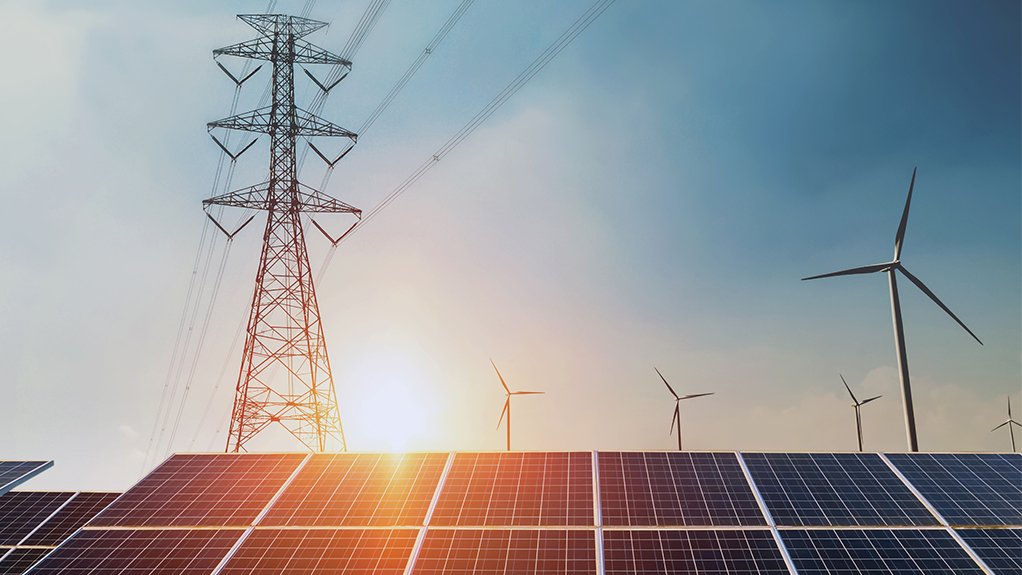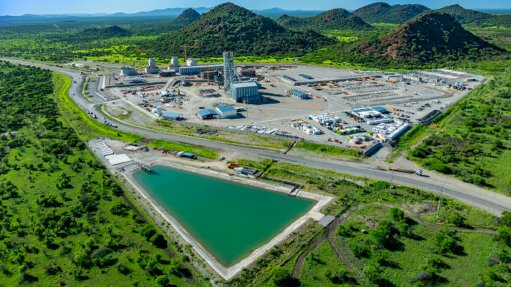Opinion: The Just Energy Transition is just taking too long
In this article, financial services provider DG Capital's Imraan Mukadam and Shaun Nel write that the need to gear all levers across government, especially through dedicated incentives towards the right projects, to support the just transition to renewables has never been more urgent.
“Hurry up and wait” could be South Africa’s de facto national tag line. In a welcome break from two decades of placing government whims at the centre of growth plans, the stated recognition of the role and support of the private sector by the Government of National Unity (GNU), especially in the implementation of the Just Energy Transition (JET), is encouraging. But many keen domestic and international investors, businesses and financiers have rightly been questioning when, where and how their investment will be consistently encouraged so that they too can play their part in generating cheap, reliable, cleaner power to grow our economy.
Late last year (November 20, 2024), Parliament’s Electricity and Energy Committee was updated by Joanne Yawitch of the Presidency’s dedicated Just Energy Transition Management Committee. Interestingly for private sector investors in renewables, it was revealed that more than R1-trillion in just transition funding remains outstanding, with approximately R600-billion expected from the private sector.
Further, it is hoped that this will start to flow once the planned upgrade of 14 000 km of transmission lines is completed, targeted for 2032.
Promising as this may sound, the reality is that only 4 300 km has been completed over the past ten years. Realistic investors could justifiably expect to wait a bit longer or just move on.
But it’s not as simple as that for South Africans, who need an income, stable work and a reliable future where the lights stay on and who, quite simply, cannot afford to wait for a future that may never come.
It’s also no secret that South Africa’s electricity prices are on a dangerous upward trajectory. Eskom, which still provides over 90% of the country’s electricity, has consistently raised prices over the past decade, exacerbating a crisis driven by inefficiency, corruption, and crippling debt.
Although loadshedding has disappeared for now, the cold reality is that hundreds of thousands of businesses and industrial operations deal with the recognition that the unexplained additional capacity plus plans to stabilise the monopoly provider come at a huge cost that will hit the job creators of our economy - small and medium-sized businesses (SMMEs) - the hardest, with an enormous impact on the poor.
SMMEs already operate on tight margins, and the compounded effect of no growth years plus Covid-19 shutdowns has meant that many thousands of businesses barely break even today. Eskom is now seeking approval for even more price hikes – nearly 40% - to cover its mounting costs, threatening to push more South Africans into energy poverty while further eroding industrial competitiveness. That means that more costly power, and even more job losses, loom as economic growth is choked to breaking point.
The frustrating truth is that we don’t need to hurry up and wait for a magical group of private sector investors to provide the outstanding capital injection that’s needed to support the transition. Private sector investors in renewables are lining up to support the shift to cleaner power but they cannot do so based purely on South Africa’s dire need. The demand to gear all levers across government, especially through dedicated incentives towards the right projects, to support the just transition to renewables has thus never been more urgent.
Government started to incentivise renewables investments in 2023 through section 12BA of the Income Tax Act as a temporary expansion of tax incentives to encourage private investment largely in solar to alleviate the electricity crisis. This included key adjustments to the previous incentive:
- Businesses can claim a 125% deduction in their first year of investment in renewable energy projects, with no thresholds on generation capacity.
- The incentive is available for investments brought into use for the first time between March 1, 2023, and February 28 this year.
Until there is a great deal more progress on increasing current grid capacity so that it can reliably service an economy that is growing, this incentive should not be allowed to lapse next month. Rather, it should be extended for at least two more years as one of many right steps in the just transition.
As one of the world’s top 15 carbon emitters, South Africa remains heavily reliant on unsustainable and environmentally damaging coal for electricity generation. And with an accelerating global shift toward cleaner energy solutions, South Africa’s need to diversify its energy mix and fast-track the adoption of renewable sources such as solar and wind is obvious. For the larger and carbon-intensive industries that export into the Eurozone, the urgency is now at crisis point as the EU phases in its Carbon Border Adjustment Mechanism that scrutinises embedded emissions.
Solar power is proving to be an economically viable option for industry, business and households. The cost of solar panels has decreased significantly in recent years, with prices often lower than Eskom power, and wise industrial users and businesses analysing current and projected future electricity costs are investing in solar rooftop installations as they hedge against future energy costs and sky-rocketing electricity prices.
Critically, however, installing renewable energy like solar is not sufficiently accessible and affordable for the wider population and the millions of entrepreneurs and SMMEs that could ignite growth and job creation with predictable financing incentives to support the shift.
To truly forge the success of our just transition, the powers that be must coordinate all efforts across all departments to move in the same direction. Extending the 12BA Income Tax incentive this year is one of the best places to start.
Article Enquiry
Email Article
Save Article
Feedback
To advertise email advertising@creamermedia.co.za or click here
Press Office
Announcements
What's On
Subscribe to improve your user experience...
Option 1 (equivalent of R125 a month):
Receive a weekly copy of Creamer Media's Engineering News & Mining Weekly magazine
(print copy for those in South Africa and e-magazine for those outside of South Africa)
Receive daily email newsletters
Access to full search results
Access archive of magazine back copies
Access to Projects in Progress
Access to ONE Research Report of your choice in PDF format
Option 2 (equivalent of R375 a month):
All benefits from Option 1
PLUS
Access to Creamer Media's Research Channel Africa for ALL Research Reports, in PDF format, on various industrial and mining sectors
including Electricity; Water; Energy Transition; Hydrogen; Roads, Rail and Ports; Coal; Gold; Platinum; Battery Metals; etc.
Already a subscriber?
Forgotten your password?
Receive weekly copy of Creamer Media's Engineering News & Mining Weekly magazine (print copy for those in South Africa and e-magazine for those outside of South Africa)
➕
Recieve daily email newsletters
➕
Access to full search results
➕
Access archive of magazine back copies
➕
Access to Projects in Progress
➕
Access to ONE Research Report of your choice in PDF format
RESEARCH CHANNEL AFRICA
R4500 (equivalent of R375 a month)
SUBSCRIBEAll benefits from Option 1
➕
Access to Creamer Media's Research Channel Africa for ALL Research Reports on various industrial and mining sectors, in PDF format, including on:
Electricity
➕
Water
➕
Energy Transition
➕
Hydrogen
➕
Roads, Rail and Ports
➕
Coal
➕
Gold
➕
Platinum
➕
Battery Metals
➕
etc.
Receive all benefits from Option 1 or Option 2 delivered to numerous people at your company
➕
Multiple User names and Passwords for simultaneous log-ins
➕
Intranet integration access to all in your organisation




















